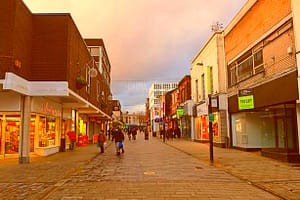As you embark on your journey to move to the charming town of St Helens, you are not just stepping into a new chapter of your life but also entering a place steeped in rich history and heritage. Nestled in the heart of Merseyside, England, St Helens is a town that dates back centuries and boasts a fascinating past that has left an indelible mark on its present. In this blog post, we invite you to delve into the history of St Helens, exploring its unique heritage and intriguing facts that make it a truly special place to call home.
Ancient Roots:
St Helens’ history can be traced back to Roman times when the area was part of the sprawling network of settlements that once dominated the region. Evidence of Roman presence, including coins and pottery, has been unearthed during archaeological excavations. However, it was during the Middle Ages that the town began to take shape.
The Origins of the Name:
The town’s name, St Helens, is derived from the early Christian chapel dedicated to St Elyn. Over the centuries, the name evolved and morphed into its current form. The area’s rich religious history is reflected in several historical landmarks, including the striking St Mary’s Lowe House Catholic Church, a magnificent example of Gothic Revival architecture.
The Industrial Revolution:
The 18th and 19th centuries marked a significant turning point for St Helens, as the Industrial Revolution brought about rapid growth and development. The discovery of coal and the establishment of glassmaking industries transformed the town into an industrial hub. The iconic Pilkington Glass Works, founded in 1826, played a crucial role in elevating St Helens to a renowned glassmaking center.
The Glass Heritage:
St Helens’ reputation as a glassmaking town endures to this day, earning it the nickname “The Glass City.” The World of Glass Museum is a must-visit destination, offering an immersive experience into the art of glassmaking and its historical significance to the region. Visitors can witness live demonstrations and explore captivating exhibitions showcasing the town’s glassmaking heritage.
Sporting Legacy:
Beyond its industrial roots, St Helens boasts a proud sporting legacy. Rugby League enthusiasts will be delighted to discover that the town has a passionate love for the sport. The iconic St Helens RFC, founded in 1873, is one of the most successful Rugby League clubs in the country. Attending a match at the renowned Totally Wicked Stadium promises an unforgettable experience, as you immerse yourself in the local sporting fervor.
Cultural Offerings:
St Helens has a thriving arts and culture scene, with a variety of galleries, theaters, and community spaces. The Citadel Arts Centre, established in 1988, is a vibrant hub for arts and live performances, hosting everything from drama productions to music concerts and comedy nights. Engaging with the local arts scene is an excellent way to connect with the community and appreciate its creative spirit.
As you make St Helens your new home, take the time to explore its remarkable history and heritage. From its Roman origins to its Industrial Revolution-era transformation and its enduring glassmaking legacy, the town’s story is one of resilience and progress. Embrace the local culture, visit historical landmarks, and immerse yourself in the lively sports and arts scenes. St Helens welcomes you with open arms, offering not just a new place to live but an opportunity to become part of its living history.




